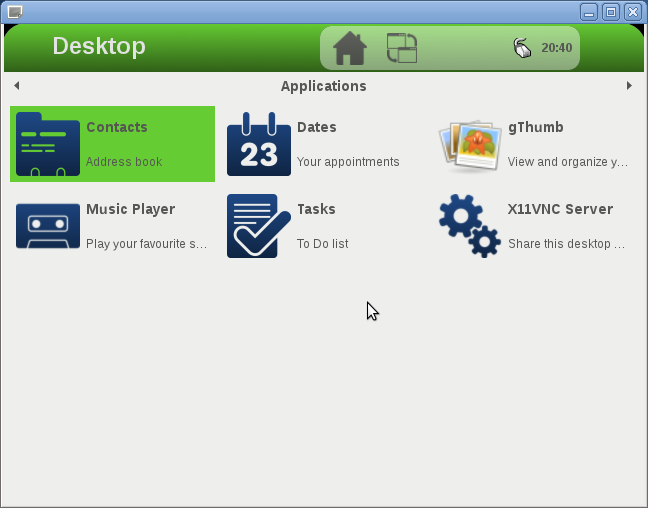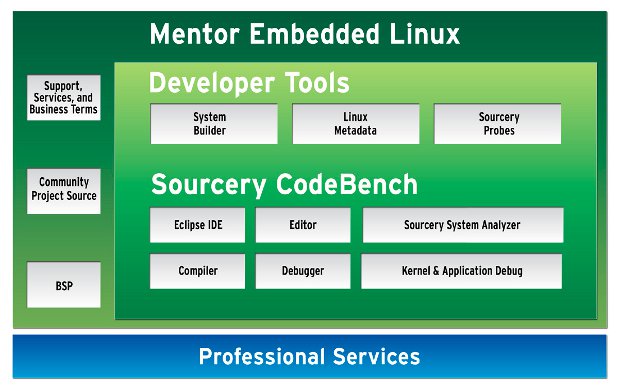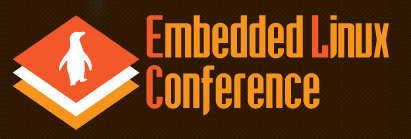LinuxCon (North America) 2012 will take place on August 29 – 31, 2012 at Sheraton Hotel & Marina, in San Diego, California. The event will be co-located with the Linux Kernel Summit, the Linux Plumbers Conference, and CloudOpen 2012. LinuxCon consists of 3 days of keynotes, business and developers related sessions as well as tutorials. There will be over 80 sessions and keynotes during those 3 days. I’ll highlight a few sessions that I find particularly interesting and related to embedded Linux, software development and ARM. August 29 10:45 – 11:30 – Life After BerkeleyDB: OpenLDAP’s Memory-Mapped Database by Howard Chu, Symas Abstract: OpenLDAP’s new MDB library is a highly optimized B+tree implementation that is orders of magnitude faster and more efficient than everything else in the software world. Reads scale perfectly linearly across arbitrarily many CPUs with no bottlenecks, and data is returned with zero memcpy’s. Writes are on […]
Yocto Project Release 1.2 Announced
The Yocto Project Release 1.2 has just been announced. This release codenamed “Denzil” and based on Poky 7.0 is the third release of the project. The project was announced in October 2010 to provide developers with greater consistency in the software and tools they’re using across multiple architectures for embedded Linux development. Yocto Project 1.2 Features: HOB redesigned with new user interface and work flow. HOB is a GUI based tool for users to customize and build an embedded Linux image in a more intuitive and easier way. Build appliance, which is a set of changes and enhancements to enable users to build a virtual machine image running Linux built with the Yocto Project. Within the Linux running on the virtual machine, users can customize and build their own customized embedded Linux images. Error message handling improvement, making error message more efficient, useful and accurate to users. New kernel update […]
The Yocto Project Overview and Update – ELC 2012
Saul Wold, User Space Architect at Intel Open Source Technology Center, discusses the latest on the Yocto Project at the Embedded Linux Conference 2012. Abstract: The Yocto Project is a joint project to unify the world’s efforts around embedded Linux and to make Linux the best choice for embedded designs. The Yocto Project is an open source starting point for embedded Linux development which contains tools, templates, methods and actual working code to get started with an embedded device project. In addition, the Yocto Project includes Eclipse plug-ins to assist the developer. This talk gives a walk-through of the key parts of the Yocto Project for developing embedded Linux projects. In addition, features will be described from the latest release of Yocto. At the end of the talk, developers should be able to start their own embedded project using the Yocto Project and use it for developing the next great […]
Android Builder Summit and Embedded Linux Conference 2012 Videos
The Android Builders Summit and the Embedded Linux Conference took place on February 13-17 2012, in San Francisco. The Linux Foundation has now posted videos of the talks as well as presentation slides on their website. Android Builder Summit 2012 Buildbot and Gerrit Integration, Improved CI Automation Using Android Outside the Mobile Phone Space The Android Ecosystem Case Study of Android Ice Cream Sandwich Rapid Bringup Towards a Standard Audio HAL for Android Topics in Designing An Android Sensor Subsystem: Pitfalls and Considerations A Novel Approach to In-Vehicle Infotainment (IVI) Based on Android Android Services Black Magic The Case For Security Enhanced (SE) Android Hardware and Android App Testing & Tuning Exposing the Android Camera Stack Usable Hardware Security for Android on ARM devices Using OpenOCD JTAG in Android Kernel Debugging The AllJoyn Open Source Project ADB: (Android Debug Bridge) : How It Works Android OTA Software Updates USB Device […]
Yocto Project Quick Start Guide for Ubuntu
Yocto is an embedded Linux build system used to create a Linux distribution for a specific application/board combination. I’ll describe 2 methods to get started: Building and running a qemu image for x86 from scratch Using pre-built binaries to run the x86 image in qemu This is a shorter version of the longish Yocto Project’s Quick Start Guide. The official guide is more complete (explains all details) and give instructions for several distributions, whereas this guide simply lists each step and is focused on Ubuntu. So you could use this guide to start the build, and during the build (which will last a while), read the official guide to actually understand how it all works. Prerequisites First, you need to use bash instead of dash in Ubuntu:
|
1 |
sudo dpkg-reconfigure dash |
and select “No” to use bash. Then install the required packages with apt-get:
|
1 2 3 4 5 |
sudo apt-get install sed wget cvs subversion git-core coreutils \ unzip texi2html texinfo libsdl1.2-dev docbook-utils gawk \ python-pysqlite2 diffstat help2man make gcc build-essential \ g++ desktop-file-utils chrpath libgl1-mesa-dev libglu1-mesa-dev \ mercurial autoconf automake groff libtool xterm |
Building and running a qemu image for […]
Mentor Embedded Linux Kits for BeagleBoard and PandaBoard
Mentor Embedded has recently released free Linux Kits for the BeagleBoard (TI OMAP3) and Pandaboard (TI OMAP4) low cost development boards. Both Mentor Embedded Linux (MEL) kits include: Mentor Embedded Linux Lite, a pre-built Yocto-based distribution, including libraries and headers A Linux Board Support Package (BSP) for your reference board A pre-built filesystem for the target Sourcery CodeBench Lite for application development Installation / Application Development Guides Since Mentor Embedded provides the “Lite” version of their kits, some of the tools mentioned in the diagram above (e.g. Codebench IDE, System Analyzer…) are not available in the free kits. After free registration, you can download the 2 kits on Mentor Embedded website: PandaBoard Linux Kit BeagleBoard Linux Kit and you’ll have access to 3 downloads: Mentor Embedded Linux Kit Installer Quick Start guides Source files which are optional. You can get support for the kits via Mentor Embedded Linux mailing list. […]
Embedded Linux Conference 2012 Schedule
The Embedded Linux Conference (ELC 2012) will take place on February 15 – 15, 2012 at Hotel Sofitel in San Francisco. ELC consists of 3 days of presentations, tutorials and sessions. There will be over 50 sessions during those 3 days. I’ll highlight a few sessions that I find particularly interesting. February 15 10:30 – 11: 30 – Profiling and Performance Measurement Techniques Using Linux Kernel Tools by Govindraj Raja, Software Engineer at Texas Instruments and Partha S Basak, Technical Manager at Texas Instruments. With ever growing features and functionality of Linux kernel, one needs methods to trace and profile parts of Linux kernel for various reasons like performance analysis, debugging etc. This presentation aims at providing an insight into few of these tools and their salient features. Supporting use case data as captured on open source OMAP4 pandaboard is also provided. 14:00 – 15:00 – The Yocto Project Overview […]
Tuning Linux For Embedded Systems – ELCE 2011
Darren Hart, Intel’s Open Source Technology Center, gives a 5 step method to optimize Linux (image size, memory footprint and boot time) for embedded systems at Embedded Linux Conference Europe 2011. Abstract: Although embedded systems are less and less resource constrained, there is still a lot of demand for minimizing the image size, runtime memory usage, and boot time. The firmware, kernel configuration, hardware initialization, boot-time arguments, start-up scripts, and library sizes are all examples of things with a direct impact on your image size and/or boot time. There are several core processes involved with minimizing the size of an image, which has a direct impact on runtime memory usage and boot time. The focus is on configuration techniques that get you most of the way there and follow-up with source-level customizations that get you the rest of the way. You can also download the presentation slides. Jean-Luc Aufranc (CNXSoft)Jean-Luc […]







